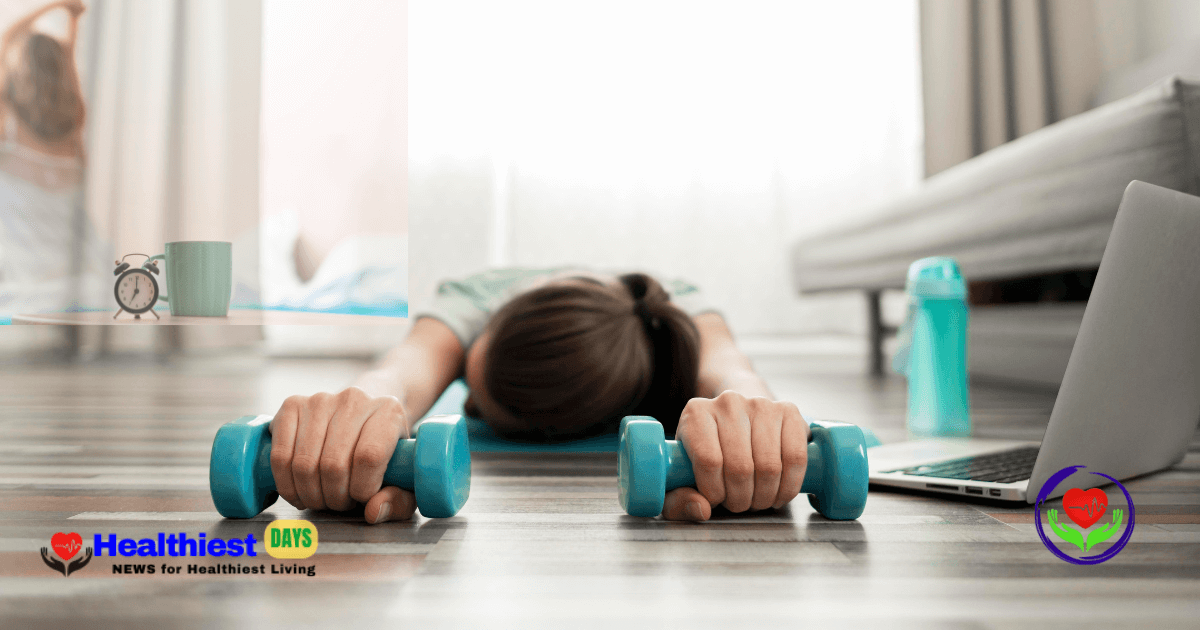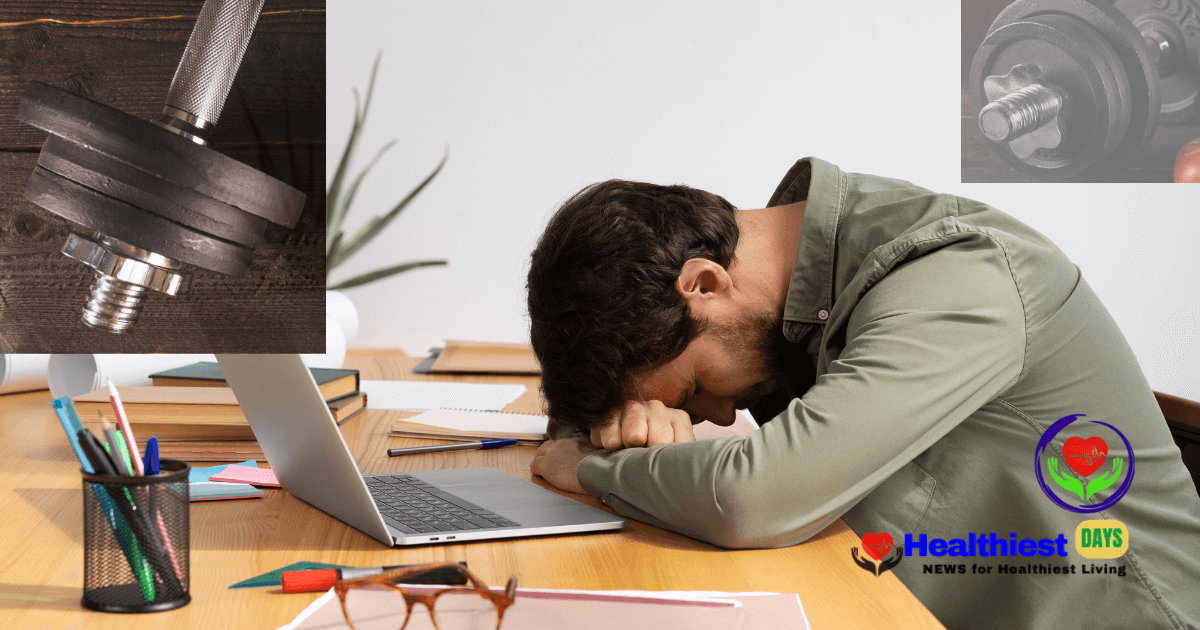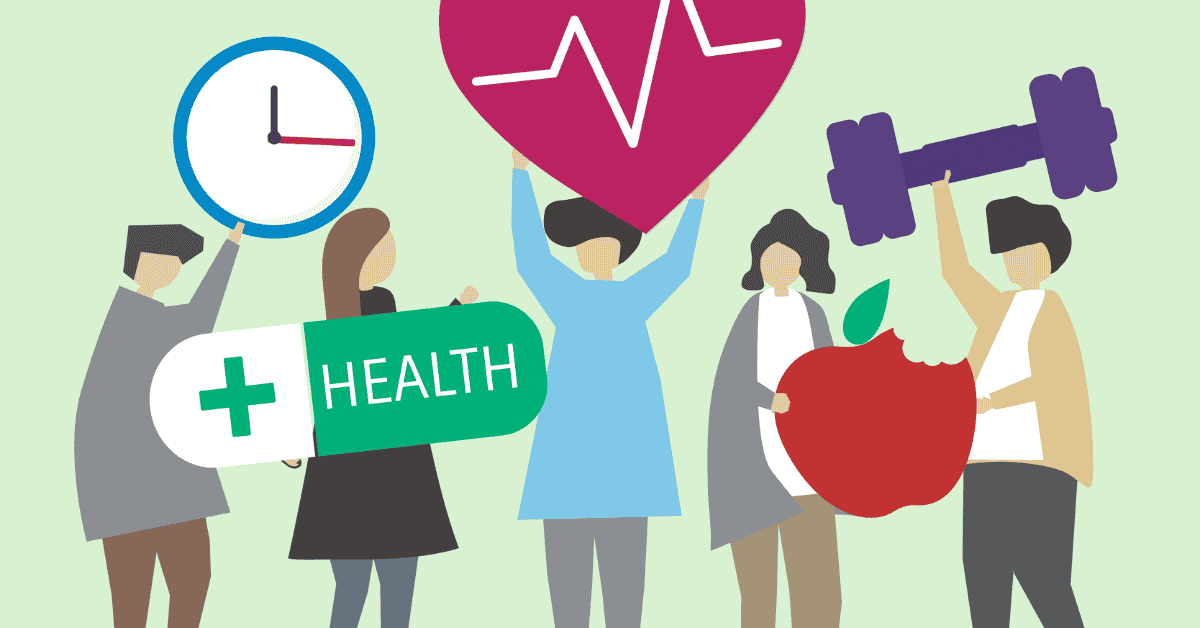Feel Tired or Sleepy after Working Out?
Working out is supposed to bring extra energy demands; scientifically, the absence of required energy demands brings sleep all the time. You may feel sometimes broken, irritated, and distorted. Instead of feeling energized, it is experienced that you crash into fatigue or even sleepiness due to the unavailability of required energy demands.
Additionally, post-workout tiredness is surprisingly common and affects everything from your daily productivity to your motivation to keep training.
It becomes an effective practice of understanding fatigue after working out, exercise sleepiness, and post-exercise fatigue helps you adjust your routine for better recovery, mental clarity, and long-term fitness success.

1. What Causes Fatigue After Working Out?
1.1 Energy Depletion & Glycogen Burn
Surprisingly, your muscles simply rely on ATP (adenosine triphosphate) and glycogen during exercise. A tough session drains these energy stores that leave you feeling wiped out. Refueling with carbs and protein within 30 minutes will re-initiate the backup energy system in your body.
1.2 Muscle Fatigue & Amount of Lactic Acid
During high-intensity workout intervals, muscle fibers accumulate lactic acid and metabolites, impeding contraction, a phenomenon known as metabolic fatigue. It leads to that heavy, sluggish, and unwanted feeling during or after the process of exercise.
1.3 Central Nervous System (CNS) Fatigue
Even if your muscles are ready for a routine workout, your brain might tell you otherwise. Central fatigue arises from a series of events when your nervous system signals “enough,” slows down your motivation, and brings alertness due to neural chemicals like serotonin, dopamine, and noradrenaline.
2. Why You May Feel Tired or Sleepy after Working Out
2.1 Muscle & Neuronal Recovery
Sleepiness post-workout is often a sign your body needs to repair. A feeling of sleepiness all the time can bring short naps, which improve muscle repair and mental clarity. However, use naps strategically—avoid over-napping, which may mess with nighttime sleep.
2.2 Dehydration & Electrolyte Loss
On similar grounds, sweating is the process that reduces fluid levels within your body. Even mild dehydration can cause severe symptoms of fatigue, lightheadedness, and grogginess. Sipping 7–10 ounces every 10–20 minutes during workouts, then rehydrating post-session, becomes more vital for your body.
3. Common Mistakes That Cause Post-Workout Tiredness
3.1 Overtraining & Inadequate Recovery
Sharing about the most experienced details, overtraining sends adrenaline into overdrive without enough recovery time, leading to chronic fatigue, mood swings, and poor performance. It is aimed to include rest days and lighter weeks in your schedule.
3.2 Poor Nutrition & Low Blood Sugar
Additionally, skipping post-workout meals hampers your recovery at a drastic rate. A snack with balanced carbs and protein (like Greek yogurt and fruit) within 30 minutes promotes or permits muscle repair and glycogen replenishment.

3.3 Inconsistent Sleep
On a similar count, missing sleep affects metabolism, brain recovery, and resilience. One bad night hampers even a light workout, making you feel unusually tired post-training.
4. Smart Recovery Strategies
4.1 Refuel with Intent
- Within 30 minutes: You are advised to eat a 3:1 carbohydrate-to-protein snack (e.g., banana with nut butter) for the completion of your energy demands.
- Hydrate: It includes electrolytes for longer, sweaty workouts.
4.2 Use Rest and Active Recovery
Plan your rest days and easy recovery routines (walking, yoga). It will support supercompensation, the body’s key adaptation period.
4.3 Fine-Tune Sleep Habits
- Target 7–9 hours per night.
- Create a screen-free wind-down routine.
- Consider a 10–20-minute nap if needed after intense sessions.
4.4 Monitor Training Volume
Changing your intensity separately and its focus (e.g., alternate cardio and strength days). Watch for overtraining signs like persistent fatigue, poor mood, or rising resting heart rate at different levels.
4.5 Pay Attention to Mental Fatigue
A tired brain can feel physically depleted. After a mentally draining day, scale back workouts or allow extra recovery time.

5. Optimizing Lifestyle for Energy
5.1 Daily Movement beyond Gym
Firstly, a series of gentle walks or stretches enhances circulation and reduces fatigue without taxing energy reserves.
5.2 Balanced Diet
Secondly, a balanced diet includes omega-3s, B vitamins, and magnesium to support energy metabolism and muscle recovery. Snack smart to avoid blood sugar crashes. It becomes the ideal energy source if you are taking a balanced diet including essential components of a balanced diet.
5.3 Stress Management
Thirdly, chronic stress raises cortisol, increasing fatigue. Add mindfulness, meditation, journaling, or deep breathing into your post-workout or evening routine.
6. When Fatigue May Be a Red Flag
If fatigue persists beyond a few days, or you experience lightheadedness, chest pain, or severe muscle pain, consider seeing a doctor—especially if you suspect anemia, thyroid issues, or rhabdomyolysis.
7. Master Your Recovery—HealthiestDays.com Recipe
Post-Workout Ritual for Endless Energy
1. 10-minute walk & stretching: It includes rest time schedules essential to maintain your ideal health
2. Hydration: Keep up-to-date on the level of body water requirements
3. Snack: It covers Greek yogurt and berries
4. Track recovery: It is a way to recover and note energy requirements for the next day
This kind of boosting energy plan enhances clarity and fosters healthier habits. Try it for 7 days.
Monitor how you feel—share your story on HealthiestDays.com
Final Thoughts:
Feeling tired after workouts is not merely a red flag, yet it is a signal for weak health. With the right approach to nutrition, hydration, sleep, stress, and balanced training, fatigue clearly becomes a manageable and temporary sign of growth, not burnout for all times.
Furthermore, embrace such kinds of evidence-based recovery strategies at HealthiestDays.com and transform post-workout exhaustion into sustainable wellness, vitality, and endless happiness.
Still Sleepy and Tired?
Are you ready to keep your energy high and your fitness goals on track?
Join the HealthiestDays community for exclusive & helpful recovery guides and habit-building tips (that can be adopted easily), and it becomes an inspiring story from everyday athletes.
Let’s investigate all that makes you feel sleepy and awkward by reading our blogs at HealthiestDays.








